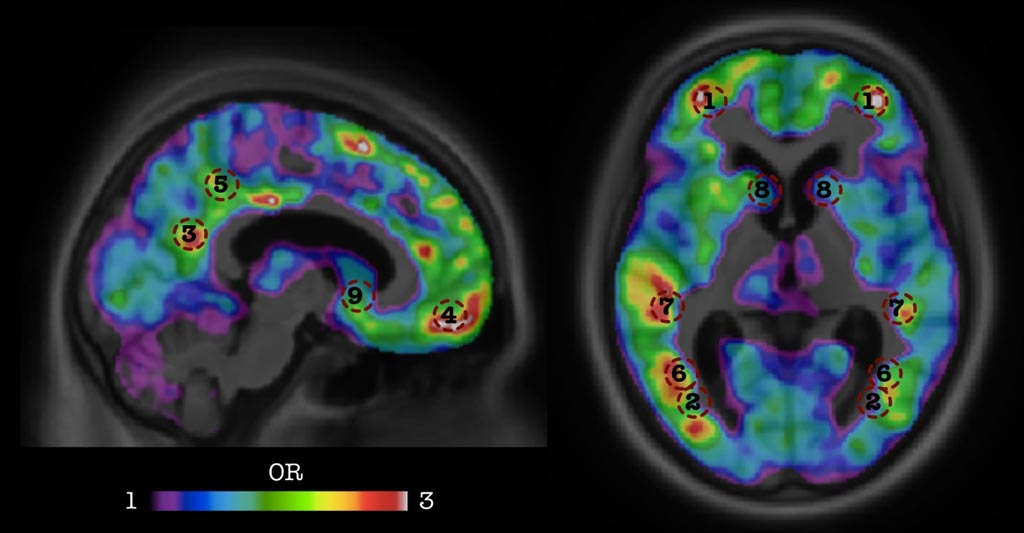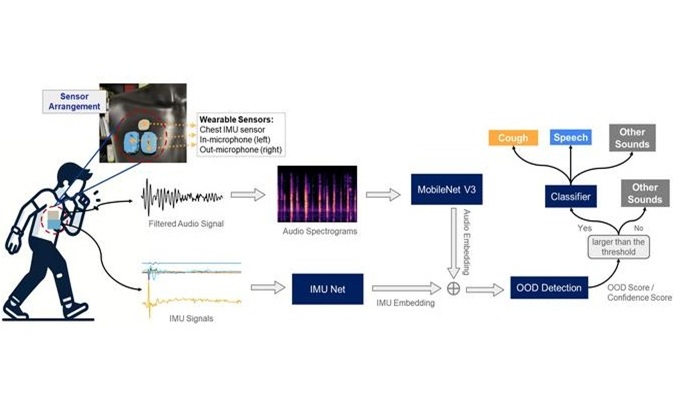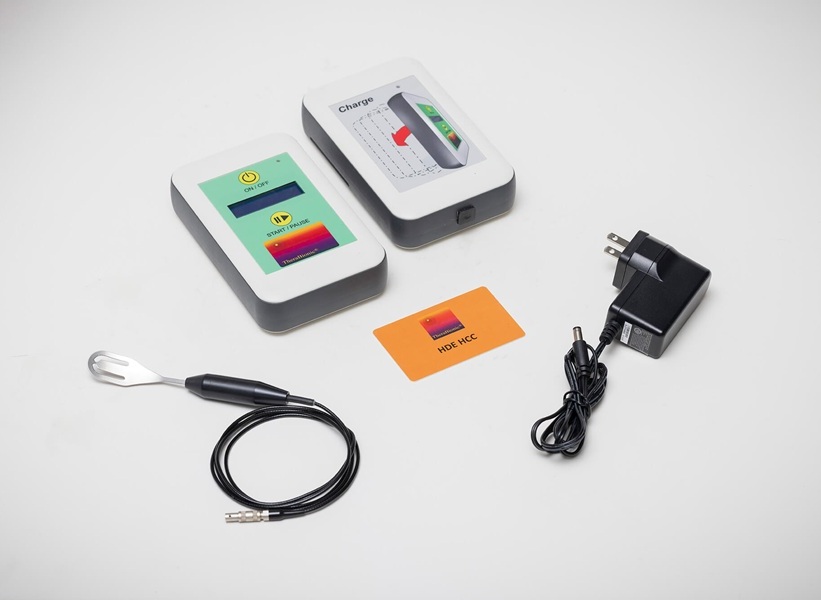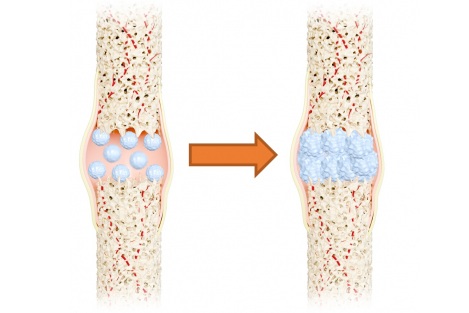Artificial Intelligence Can Predict Dementia in Advance
|
By HospiMedica International staff writers Posted on 07 Sep 2017 |

Image: Scientists used AI techniques and big data to develop an algorithm capable of recognizing the signatures of dementia two years before its onset, using a single amyloid PET scan of the brain (Photo courtesy of McGill University).
Scientists from the Douglas Mental Health University Institute’s Translational Neuroimaging Laboratory at McGill University (Quebec, Canada) have used artificial intelligence techniques and big data to develop an algorithm capable of recognizing the signatures of dementia two years before its onset, using a single amyloid PET scan of the brain of patients at risk of developing Alzheimer’s disease.
The researchers drew on data available through the Alzheimer’s Disease Neuroimaging Initiative (ADNI), a global research effort in which participating patients agree to complete a variety of imaging and clinical assessments. Hundreds of amyloid PET scans of MCI patients from the ADNI database were used to train the team’s algorithm to identify which patients would develop dementia, with an accuracy of 84%, before symptom onset. The team of researchers at McGill is carrying out further research to find other biomarkers for dementia that could be incorporated into the algorithm in order to improve the software’s prediction capabilities. The researchers are also currently conducting further testing to validate the algorithm in different patient cohorts, particularly those with concurrent conditions such as small strokes.
The technology is expected to change the way physicians manage patients and greatly accelerate treatment research into Alzheimer’s disease. “By using this tool, clinical trials could focus only on individuals with a higher likelihood of progressing to dementia within the time frame of the study. This will greatly reduce the cost and the time necessary to conduct these studies,” said Dr. Serge Gauthier, co-lead author and Professor of Neurology & Neurosurgery and Psychiatry at McGill.
Related Links:
McGill University
The researchers drew on data available through the Alzheimer’s Disease Neuroimaging Initiative (ADNI), a global research effort in which participating patients agree to complete a variety of imaging and clinical assessments. Hundreds of amyloid PET scans of MCI patients from the ADNI database were used to train the team’s algorithm to identify which patients would develop dementia, with an accuracy of 84%, before symptom onset. The team of researchers at McGill is carrying out further research to find other biomarkers for dementia that could be incorporated into the algorithm in order to improve the software’s prediction capabilities. The researchers are also currently conducting further testing to validate the algorithm in different patient cohorts, particularly those with concurrent conditions such as small strokes.
The technology is expected to change the way physicians manage patients and greatly accelerate treatment research into Alzheimer’s disease. “By using this tool, clinical trials could focus only on individuals with a higher likelihood of progressing to dementia within the time frame of the study. This will greatly reduce the cost and the time necessary to conduct these studies,” said Dr. Serge Gauthier, co-lead author and Professor of Neurology & Neurosurgery and Psychiatry at McGill.
Related Links:
McGill University
Latest AI News
Channels
Critical Care
view channel
Origami Robots to Deliver Medicine Less Invasively and More Effectively
Delivering medicine to ulcers or other internal sites often requires invasive procedures that can disrupt surrounding tissues and lengthen recovery times. Traditional magnetic actuators used in soft robotics... Read more
Improved Cough-Detection Technology Aids Health Monitoring
Coughing serves as an important biomarker for tracking a variety of conditions and can help monitor the progress of respiratory diseases or predict when someone’s asthma is being exacerbated.... Read moreSurgical Techniques
view channel
Novel Glue Prevents Complications After Breast Cancer Surgery
Seroma and prolonged lymphorrhea are among the most common complications following axillary lymphadenectomy in breast cancer patients. These postoperative issues can delay recovery and postpone the start... Read more
Breakthrough Brain Implant Enables Safer and More Precise Drug Delivery
Delivering medication directly to specific regions of the brain has long been a major challenge in treating neurological disorders. Current implants and infusion systems typically reach only one or two... Read morePatient Care
view channel
Revolutionary Automatic IV-Line Flushing Device to Enhance Infusion Care
More than 80% of in-hospital patients receive intravenous (IV) therapy. Every dose of IV medicine delivered in a small volume (<250 mL) infusion bag should be followed by subsequent flushing to ensure... Read more
VR Training Tool Combats Contamination of Portable Medical Equipment
Healthcare-associated infections (HAIs) impact one in every 31 patients, cause nearly 100,000 deaths each year, and cost USD 28.4 billion in direct medical expenses. Notably, up to 75% of these infections... Read more
Portable Biosensor Platform to Reduce Hospital-Acquired Infections
Approximately 4 million patients in the European Union acquire healthcare-associated infections (HAIs) or nosocomial infections each year, with around 37,000 deaths directly resulting from these infections,... Read moreFirst-Of-Its-Kind Portable Germicidal Light Technology Disinfects High-Touch Clinical Surfaces in Seconds
Reducing healthcare-acquired infections (HAIs) remains a pressing issue within global healthcare systems. In the United States alone, 1.7 million patients contract HAIs annually, leading to approximately... Read moreHealth IT
view channel
Printable Molecule-Selective Nanoparticles Enable Mass Production of Wearable Biosensors
The future of medicine is likely to focus on the personalization of healthcare—understanding exactly what an individual requires and delivering the appropriate combination of nutrients, metabolites, and... Read moreBusiness
view channel
Philips and Masimo Partner to Advance Patient Monitoring Measurement Technologies
Royal Philips (Amsterdam, Netherlands) and Masimo (Irvine, California, USA) have renewed their multi-year strategic collaboration, combining Philips’ expertise in patient monitoring with Masimo’s noninvasive... Read more
B. Braun Acquires Digital Microsurgery Company True Digital Surgery
The high-end microsurgery market in neurosurgery, spine, and ENT is undergoing a significant transformation. Traditional analog microscopes are giving way to digital exoscopes, which provide improved visualization,... Read more
CMEF 2025 to Promote Holistic and High-Quality Development of Medical and Health Industry
The 92nd China International Medical Equipment Fair (CMEF 2025) Autumn Exhibition is scheduled to be held from September 26 to 29 at the China Import and Export Fair Complex (Canton Fair Complex) in Guangzhou.... Read more
















